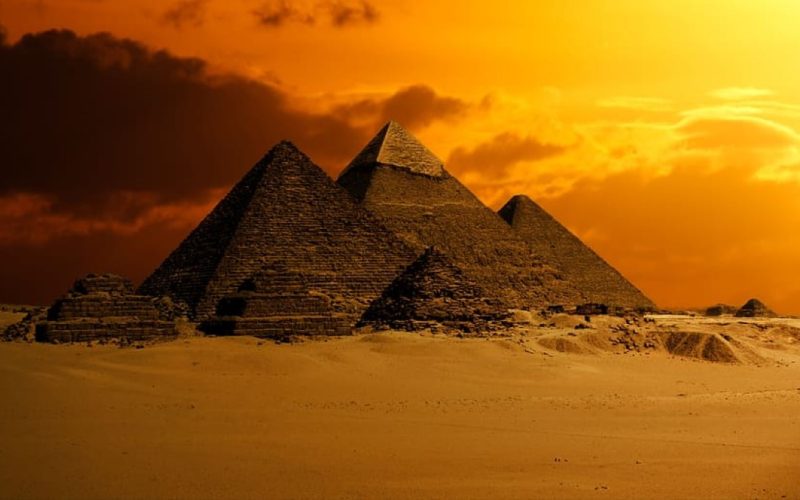Is Egypt on the verge of becoming an unlikely wildcard in overhauling the status quo in Middle East? In this time of falling bombs and moving alliances, Egypt’s president Abdel Fattah el-Sissi has made a bold move involving direct communication with the leadership of Iran.
During the emergency phone call with Iranian president Masoud Pezeshkian, Sissi confirmed Egypt’s “total refusal” of the current Israeli military escalation in Gaza and noted that the Arab world is teetering on the edge of disorder.
US Attack on Iran: Did Trump’s “Successful” Bombing of Fordow Just Change Everything?
This isn’t only diplomatic posturing either. Egypt’s message is unequivocal: dialogue not war, is the only way to achieve stability. Sissi’s words reverberate across a region scarred by years of war.
Seldom has Cairo’s counsel been so dire—or so lonely. Egypt is reiterating its longstanding role as a mediator, even as the situation moves increasingly away from the causes that empowered them.
Why is Egypt so important at this moment in time? As the old saying in the state goes, geography is destiny. Geostrategically, Egypt lies what might be called the crossroads between Africa and the Middle East, sharing a border with Israel to the northeast and located just across the Red Sea from Iran’s expanding sphere of influence in Yemen and the Persian Gulf.
The two countries, Egypt and Iran, do not have a land border between them but their relative closeness means that an Israeli–Iranian conflict would likely so rapidly escalate into mixed asset space.
Egypt’s 110 million people, five times that of Egypt’s next nearest neighbor Saudi Arabia makes the numbers of Saudi Arabia’s population seem puny in comparison, just as Iran’s almost 100 million people make the rest of the region’s countries seem small in size.
Both are cradle of civilizations, home to one of human civilization’s earliest cities, with a deeply rooted history of conflict and reluctant partnership.
The stakes are getting higher. Iran—President Pezeshkian now in charge as of July 2024 –is under the hardest of international consensual pressure . In return, Israeli airstrikes have pushed the campaign deep into Iranian territory, targeting nuclear facilities and military sites.
Addison Rae’s Unstoppable “Addison Tour” Is the Pop Event Fans Can’t Stop Talking About
The U.S. has now stood with Israel in bombing important Iranian nuclear sites, bringing the conflict to heights not seen since the Iran-Iraq war of the 1980’s. Iran’s supreme leader, Ayatollah Ali Khamenei, is said to be running Iran from a rat-proof bunker, speaking only through hand-picked intermediaries, and laying plans to ensure his preferred succession.
The Iranian leadership contends not only with external threats but with the pressures of internal instability, as ethnically-based separatist movements and rival political factions look for any opening that could undermine continuity of strength.
Egypt is clearly trying to play both sides in this growing shooting war. Instead, Sissi is making calls, asking for calm, and encouraging parties to return to the table.
Egypt’s foreign minister has sent a letter to the EU’s foreign policy chief updating her on Cairo’s efforts to cool the region down, and insisting that only dialogue can prevent a greater catastrophe.
This is not just classic Egyptian diplomacy, assertive, self-interested and pragmatic, but the old truism that regional stability is in everyone’s interest.
So can Egypt actually move the needle? The outcome might be as much about whether Cairo is able to marshal support from fellow Arab states and other international partners astride its peacemaking vision.
Egypt’s influence is less about its power or even its military than it is about Egypt’s credibility as the only Arab country to have fought a war with Israel and signed a peace deal in 1979.
Thus far Sissi’s Government has struck a careful balance, keeping lines of communication open with both Washington and Tehran despite the U.S.-backed dictatorship’s horror at the violence engulfing its neighbors.
The world is watching. If Egypt manages to establish even a limited, temporary pause, the move could solidify its position as the region’s indispensable power broker. If it succeeds, it will be a great achievement—not only for Egypt, but for millions of people across the Middle East.
Russian Missile and Drone Strikes Kyiv Claim 14 Lives and almost 4 dozens injured
Curious to learn more about how Egypt’s unique geography helps it extend its influence today. Explore this interactive web map of Egypt and its neighbors. Want to know more about Iran’s new president and the country’s political structure? Here’s our in-depth profile of President Masoud Pezeshkian.
In a climate where the drums of war beat ominously, Egypt’s call for dialogue is a welcome sign. Perhaps the only calm voice in an angry and volatile region. Will anybody pay attention? Or will Egypt’s calls for peace be silenced by the noise of fighter-jets and the explosion of bombs?
Interested in International News , Read here





